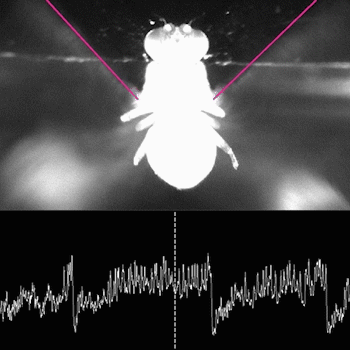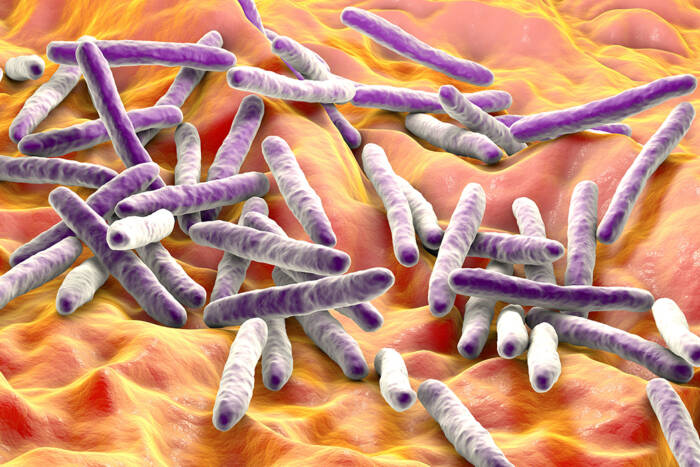Rockefeller University Awards 25 Ph.D.s and Two Honorary Degrees at 36th Commencement
The Rockefeller University today awarded twenty-five Ph.D. degrees to students at the University’s 36th commencement ceremonies. Two honorary degrees were also given, one to Tsung-Dao (T.D.) Lee, a Nobel Prize-winning theoretical physicist whose studies have revolutionized scientific understanding of the primary forces that shape the universe, and one to Louis J. Hector, Chairman of the Lucille P. Markey Charitable Trust and a long-time champion of the role of basic biomedical research in the struggle against disease.
“We are proud of this year’s outstanding graduating class, which includes 25 students who have passed a very rigorous program of scientific education,” said Torsten Wiesel, the university’s president and Nobel Prize-winning neurobiologist, who addressed the commencement participants in Caspary Auditorium following a colorful procession along Rockefeller’s shaded 14-acre campus. “We are especially proud of one very talented young woman, Elizabeth Mendez, who is successfully pursuing a career in science despite being confined to a wheelchair by spina bifida,” Wiesel said. Mendez made history by becoming the first disabled student to be granted state funds for a technician to aid her with her scientific work and the first to graduate from Rockefeller.
In accordance with tradition, there was no commencement speaker. Instead, the 25 Ph.D. recipients, who include seven students enrolled in the joint M.D.-Ph.D. program with Cornell University Medical College and Sloan-Kettering Institute, were called up one by one as selected faculty members explained the significance of each degree recipient’s research.
The 1994 Rockefeller University Ph.D. recipients and their fields of specialization are:
Thomas Akompong Neuroendocrinology Ethan Alexander Benardete Biophysics Mark Joseph Benedyk Developmental and Molecular Genetics Joel N. Blankson Laboratory Animal Research Center Marcia Simpson Brose Developmental Molecular Genetics Stephan-Michael Feller Molecular Oncology Lei Feng Molecular Biology Mark Stuart Forman Cellular Physiology and Immunology Alexander Hoffmann Biochemistry and Molecular Biology Tae Kook Kim Biochemistry and Molecular Biology John D. McKinney Yeast Molecular Genetics Elizabeth Méndez Cell Biology Andrew J. McW. Millar Plant Molecular Biology Anthony Molloy Cellular Physiology and Immunology Mary Beth Moorefield Biochemistry and Molecular Biology Pratik Muhkerjee Biophysics Victor Allen Neel Genetics Deborah Jean Norman Molecular Biology Una O'Doherty Cellular Physiology and Immunology José María Prats Rocavert Theoretical Physics Vincent R. Prezioso Molecular Cell Biology Malini Vashishtha Cell Biology Zenta Walther Cell Biology Jay Wayne Molecular Immunology
President Wiesel also praised the two honorary degree recipients. “We are very pleased to honor T.D. Lee and Louis J. Hector, two outstanding individuals who are distinguished leaders in their fields,” he said. “In the finest tradition of this institution, these men have made momentous contributions to science and to scientific education.”
Dr. Lee, who was born in Shanghai, China in 1926 and received his Ph.D. from the University of Chicago in 1950, shared the Nobel Prize in Physics in 1957 for disproving the notion of parity conservation, which held that all basic laws of nature adhere to left-right symmetry. His subsequent work on parity violation redefined the roles of the basic forces of nature and spurred the progress of modern particle physics. Dr. Lee, a member of the Columbia University faculty since 1953, is renowned for his seminal contributions to statistical mechanics–describing the liquid-gas phase transition–and to quantum field theory, general relativity, and high-temperature superconductivity. He is also widely recognized for his heroic efforts to foster scientific interchange with his native China. He organized the China-U.S. Physics Examination and Application Program, which has brought nearly one thousand Chinese doctoral students to the United States, and supervised construction of the Beijing Positron Collider, which Chinese and American physicists use to study subatomic particles.
Louis J. Hector, Esq., a graduate of the Yale Law School and a former Rhodes Scholar, is a senior partner in the Miami-based law firm, Steel Hector & Davis. He has advised corporate executives, educators, philanthropists, and United States presidents, and has been active in government and the formulation of public policy, having served on the Civil Aeronautics Board and the National Endowment for the Humanities. The Rockefeller University has enjoyed a close relationship with Mr. Hector. He joined the Rockefeller University Council in 1977, and was named a trustee in 1981, serving on the audit, nominating, and corporate relations committees, and continues as trustee emeritus. He has also served on the boards of Smith College and the University of Miami. In the 1970s, Mr. Hector’s enthusiasm for basic science encouraged Lucille Parker Markey, one of his many prominent clients, to make major gifts to research institutions. Following Mrs. Markey’s death in 1982, Mr. Hector was instrumental in establishing the Lucille P. Markey Charitable Trust as an organization dedicated to the advancement of biomedical research. Under his chairmanship, the Trust has granted more than $450 million for innovative biological investigations in the country’s leading universities, and through its prestigious Markey Scholar Program has identified and nurtured tomorrow’s scientific leaders.
Dr. Lee was presented with a diploma by Rockefeller University Professor Nicola N. Khuri, head of the laboratory of theoretical physics, and Hector received a diploma from Vincent Astor Professor and head of the laboratory of molecular cell biology James E. Darnell, Jr.
The Rockefeller University was founded in 1901 by John D. Rockefeller as the nation’s first biomedical research center. In 1954 it became a graduate university enrolling a small number of highly qualified doctoral candidates in the biomedical and physical sciences. Rockefeller graduate students, who come from undergraduate colleges all over the world, combine traditional study of basic science with independent laboratory research. Of the university’s 600 graduates, 13 alumni are members of the National Academy of Sciences and two have won Nobel Prizes. Nineteen Nobel laureates have been associated with the university, five of whom are on campus today.



